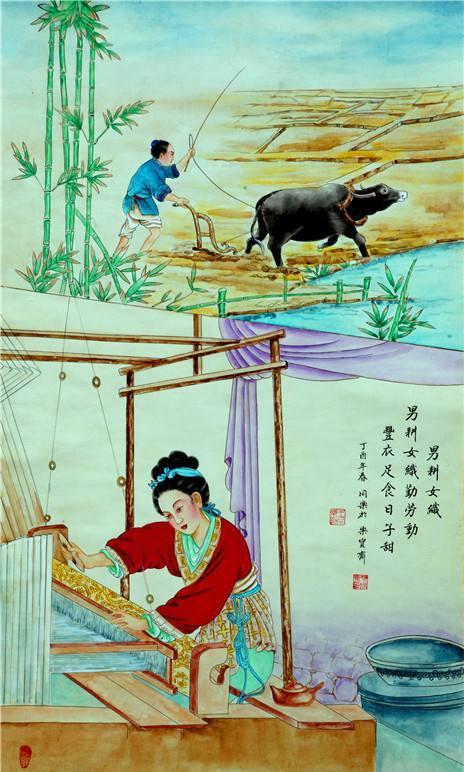Since China entered the feudal society and the Qin unified the Six Kingdoms, the great unification regime existed for 15 years in the Qin Dynasty, 210 years in the Western Han Dynasty, 195 in the Eastern Han Dynasty, 51 years in the Western Jin Dynasty, 37 years in the Sui Dynasty, 289 years in the Tang Dynasty, 98 yuan in the Yuan Dynasty, 276 years in the Ming Dynasty, and 268 years in the Qing Dynasty. Even though there are differences in the time of existence, without exception it has not exceeded three hundred years. Some people may say that the Eastern and Western Han Dynasties have been more than four hundred years together, but in fact, in the last year of the Western Han Dynasty, Wang Mang usurped the Han Dynasty to establish a new dynasty, and the Western Han Dynasty has already perished, although the new dynasty is only fifteen years, an emperor. However, after the fall of the new dynasty, the country fell into a split for twelve years before it was reunified by Liu Xiu and restored to the Eastern Han Dynasty. Some people will say that the Southern and Northern Song Dynasties have added up to more than three hundred years, and my view is that the Southern and Northern Song Dynasties are not great unified regimes, after all, the Southern and Northern Song Dynasties have not unified China, and the Southern Song Dynasty is still partial to the south of the River and has lost the Central Plains. Great unification means that the country is unified economically, politically, ideologically and culturally, and cannot be divided.
Since Qin Shi Huang unified the six kingdoms and established centralized power, the general trend of the world will be divided for a long time, and it will be united for a long time, and unification and division are a matter of time. However, great unification will always be the main theme, and there will be no situation in China like many small countries in Europe, whether it is Xiang Yu destroying the Qin Dynasty and the actual division of the feudal system, wanting to return to the period of the Zhou division and sealing system, or the rule of the northern and southern regimes, it will eventually be pushed forward by the wheel of history.
The feudal era was a small peasant economy, self-sufficient, male farming and female weaving. Carefully observing the establishment and fall of each dynasty, they are repeating a process and never jump out of this strange circle. Whenever the land of China moves from division to unification, that is, the establishment of a new dynasty, in the early days, due to the war, the population was sharply reduced, and the land was not cultivated. The state will make every peasant have a field, crack down on the landlords, curb land annexation, and recuperate with the people. In the medium term, due to the increase in the population of recuperation, the harvest of crops, the recovery of the economy, and the stability of the situation, the country began to reach a strong point. In the later period, the landlords annexed the peasant land, the peasants went bankrupt and became displaced, and in order to survive the uprising, the land of China reappeared in chaos, until the birth of a new regime, repeating the above process. The contradictions of the small-scale peasant economy have not been fundamentally resolved or cannot enter a new social form, and the change of power in feudal society is only a change of person as emperor.

The corruption of the ruling clique has forgotten the difficulties of the ancestors' entrepreneurship, and will only covet pleasure, loot the people's fat, and fight for power and profit between parties. Nor can we reform state policies according to the development of the times, and the law of the ancestors of the corrupt Confucians is immutable, but only a certain reform has been carried out, repairing and repairing it, not eradicating its shortcomings, but only delaying the overthrow of the dynasty.
Since the Chen Sheng Wu Guang Uprising issued "The Prince Will Xiang Ning Has a Kind of Hu", no one can resist the temptation of "being ordered by heaven, both Shou Yongchang", a dynasty will always face many uprisings, rebellions. Whether it's a general, a clan or a peasant. Their ultimate goal is always that position, which often leads to dynastic succession.
Every few years to more than a decade, there will be major disasters and calamities in the land of China, such as plagues, floods, droughts, earthquakes, locust plagues, ice ages, etc. As long as the rulers do not handle it properly, the hungry and cold peasants will evolve into displaced people, carrying out peasant uprisings and endangering the rule of the dynasty.
Soldiers after the plague